Jerusalem has become a noisy city over the past few weeks. We are currently in the month of Elul, the sixth month on the Hebrew calendar. The month of Elul comes before the seventh month, Tishri, which is the month of the biblical holidays during the fall season: The Feast of Trumpets, The Day of Atonement (Yom Kippur), and The Feast of Tabernacles.
The Hebrew month of Elul (Sept. 4 – Oct. 2, 2016) is traditionally observed as a month of preparation for the Day of Judgement, the first day of Tishri (Oct. 3, 2016), which is the observance of The Feast of Trumpets (Lev. 23:22-24). The connection between the Feast of Trumpets (also known as “Rosh HaShanah”) and the Day of Judgement stems from the many biblical references to the coming “Day of the LORD” which is ushered in with the blowing of the trumpet or the shofar (Joel 2:1).
In anticipation of a coming day of judgement, it is the Jewish practice to have forty days of repentance beginning with the first day of Elul and concluding on the Day of Atonement, the tenth day of Tishri. Even though The Feast of Trumpets is considered a day of judgement, there is an intense ten-day period of introspection and repentance between The Feast of Trumpets and Yom Kippur, which are called the “Days of Awe,” which lead up to the final judgement and final blowing of the shofar.
So why is Jerusalem noisy during the month of Elul?
“Selichot”
During the month of Elul, the first 30 days of the 40 days of repentance, it is customary in Jewish tradition to say prayers of repentance, which are called “סליחות” – “selichot,” which literally means “pardon” or “forgiveness.” There are different customs depending on various affiliations of the Jewish people (for example being Ashkenazi or Sephardic) regarding the timing of the prayers, however, the general content of the prayers which are offered are similar.
The “selichot” prayers are generally performed in the middle of the night, between midnight and sunrise. There is also the custom of blowing the shofar after the morning prayers during the month of Elul as a means to remind the Jewish people to awake, repent, and be ready for the coming day of judgement. The combination of crying out to God in the middle of the night for forgiveness, entreating God for mercy, and blowing of the shofar on a daily basis for an entire month have made Jerusalem a much noisier city.
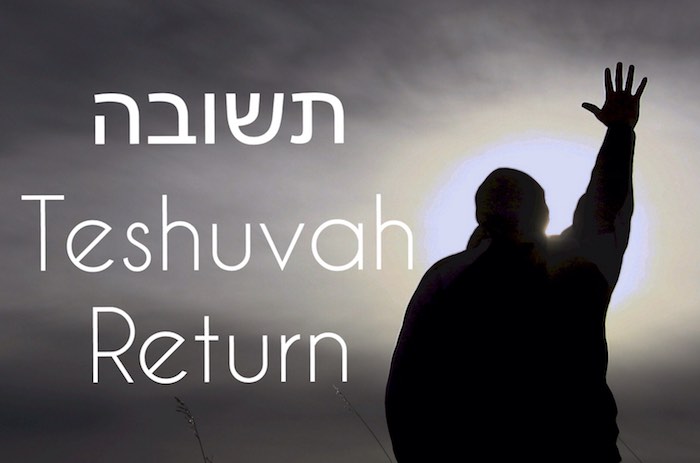
Elul & Forgiveness
In the quest to receive forgiveness from the LORD during the month of Elul there are three actions that are prescribed by the rabbis: repentance (“תשובה” – “tshuva”), prayer (“תפילה” – “tefila”), and the giving of charity (“צדקה” – “tzdaka”). Each of these actions are associated with a phrase from the Bible which forms an acronym spelling the name of the month of Elul or in the Hebrew script: “אלול.”
The phrase for repentance which contains the acronym for Elul is taken from a verse in this week’s Torah Portion:
Moreover the LORD your God will circumcise your heart and the heart of your descendants, to love the LORD your God with all your heart and with all your soul, so that you may live. – Deut. 30:6
This verse appears in the context of the blessings and curses which includes the choice of the children of Israel to walk in obedience to God’s ways. If they were ever cast out of the Land of Israel as a result of their disobedience and then repented and turned back to the LORD, the LORD Himself would bring them back and give them a circumcised heart to love Him with a whole heart.
The phrase from the above verse which is highlighted during the time of “selichot” in reference to the name of the month “Elul” is, “את לבבך ואת לבב” – “et levavcha ve’et le’vav,” which is literally “your heart and the heart of” (your descendants). In Hebrew the first letter of each word spells “אלול” – “Elul.” Unfortunately, it doesn’t transfer into English. The main point of this verse, however, is to show that repentance leads to a right relationship with the LORD.
The Search for Forgiveness
The forty days of repentance and seeking the favor of God during the month of Elul and beyond are a continual effort by the Jewish people to obtain the forgiveness of God. The understanding in Judaism is that God is more available and willing to forgive during this time period then at any other time of the year.
As The Feast of Trumpets (Rosh HaShanah) approaches there is a tremendous feeling of anticipation mixed with uncertainty at this coming day of judgement. The former Chief Rabbi of Israel shared these words regarding this day:
It is on Rosh HaShana that we can feel the embodiment of the verse, “serve the Lord in fear, and rejoice while trembling” (Psalm 2:11), for these are days of joy mixed with trembling. – Rabbi Israel Meir Lau. Practical Judaism. Modan Publishing. 1997 p. 216
In Judaism, one does his or her best to keep the Law and to walk in the teachings of the rabbis regarding “selichot,” however, there is no guarantee that one has done enough to attain forgiveness. Although there is no absolute assurance of forgiveness within the Orthodox Jewish system, there are many powerful reminders of the forgiveness and salvation that only come by the hand of God.
Avinu Malkenu
From the first day of the Feast of Trumpets (Rosh HaShanah) until Yom Kippur, a certain prayer called “Avinu Malkenu” – “Our Father, Our King” is recited. In the middle of this prayer is the following stanza: “אבינו מלכנו, הצמח לנו ישועה בקרוב” – “Our Father, our King, make salvation sprout for us soon.” This stanza reminds us of the longing for salvation within Judaism and the knowledge that this salvation is only possible through God the Father Himself.
The final stanza of the“Avinu Malkenu” prayer says the following:
“אבינו מלכנו, חננו ועננו, כי אין בנו מעשים, עשה עמנו צדקה וחסד והושיענו”
“Our Father, our King, be gracious to us and answer us, although we have no worthy deeds; treat us with charity and kindness and save us.”
In the final stanza of this prayer there is a picture of total abandonment to God. There is also an acknowledgement that there is nothing that we as humans can offer to God except to completely rely on His mercy to save us.
Assurance of Forgiveness and Salvation
The combination of repentance from sin, seeking forgiveness from God, and admitting that there is nothing that one can do except rely on God for mercy and salvation is a powerful formula for walking with God. As I was contemplating this whole rhythm and system of seeking forgiveness in Orthodox Judaism I realized afresh that the only thing missing is the complete sacrifice that was made possible through Yeshua’s death and resurrection.
For those of us who believe in Yeshua as the Messiah we have an eternal High Priest who continually intercedes for us by His own blood. If anyone does not believe in Yeshua as the Messiah than forgiveness from sin remains elusive.
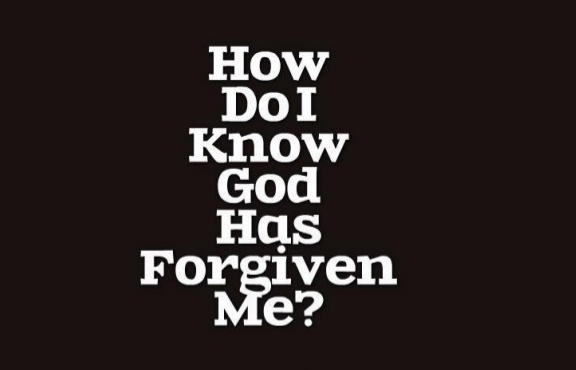
So Close Yet So Far Away
I often get frustrated at the way Judaism seems to bring people so close to the full truth that I believe God wants us all to walk in, while at the same time keeping people just far enough away from fully embracing Yeshua as the Messiah. The beauty of Judaism, however, is that it is based on the Word of God and the Scriptures stand alone as a testimony of who God is.
Although Judaism offers a way for people to repent and seek God for forgiveness there is a continual uncertainty of when this is truly complete and fulfilled. At the same time, the prayers and Scriptures which are read during these days testify to the provision of God to grant ultimate salvation to His people. As we all know well, the word for “salvation” in Hebrew is the word “ישועה” – “Yeshua” which is also the Name that God gave to His Son and our Messiah. This Name, Yeshua, is often proclaimed in the Jewish prayers, especially during the Fall Feasts. I’ll close this week’s commentary with two examples of how the word “yeshua” appears in the Scriptures.
Longing for Salvation
One of the Scriptures which is read twice daily during the forty days and throughout the fall holidays is Psalm 27. Psalm 27 begins with this phrase: “יהוה אורי וישעי” – “Adonai ori ve’yishi” – “The LORD is my light and my salvation” (Ps. 27:1). In the uncertainty of life, the LORD alone is our light and He alone is our salvation. As a person prays this Psalm twice a day, day after day during this season, one is literally declaring that, “The LORD is my salvation.”
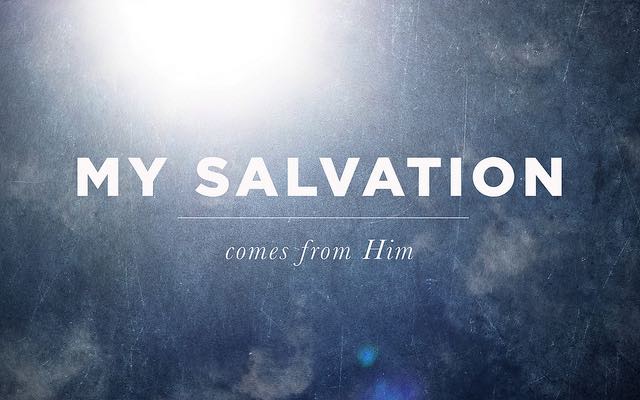
The Salvation of the LORD
This week’s Torah Portion is found in Deuteronomy chapters 29-30 and the corresponding reading from the prophets is found in Isaiah 61:10 – Isaiah 63:9. These verses in Isaiah are full of Messianic prophecies and declare again and again that the LORD Himself is our Savior. Among these verses there is one verse in particular that highlights salvation in a unique way:
Behold, the LORD has proclaimed to the end of the earth, say to the daughter of Zion, “Lo, your salvation comes; Behold His reward is with Him, and His recompense before Him.” – Isaiah 62:11
The use of salvation in this verse and in this context is not simply relating to physical deliverance but it speaks of salvation as an individual who comes and brings something with Him.
The salvation of the LORD is personified in the verse above as someone who comes to redeem the people of the LORD. A few verses later, the “Savior” of Israel is identified:
For He said, “Surely, they are My people, sons who will not deal falsely.” So He became their Savior. – Isaiah 63:8
The word for “Savior” is “מושיע” – “Moshia” and means “one who saves” and is the same root word of “Yeshua.” In the context of the this verse it is clearly the LORD Himself who is speaking. The LORD God is the Savior of the people of Israel and His Name is Yeshua.
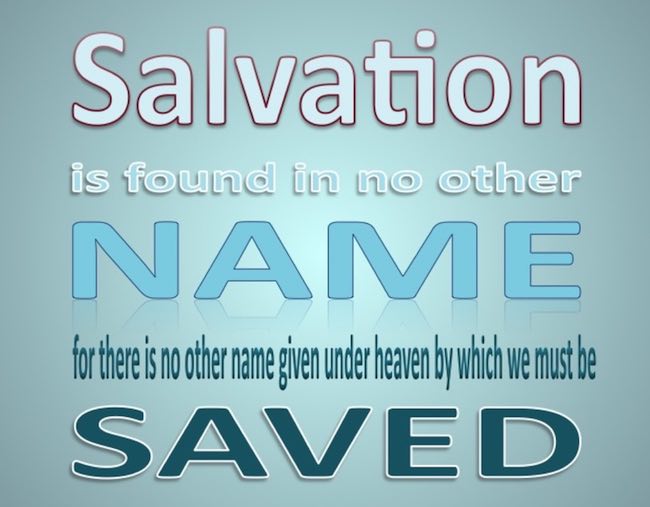
Salvation in His Name
The prophet Zechariah prophesied continually about the future of the people of Israel and recorded the following regarding the whole house of Israel:
“And I will strengthen them in the LORD, and in His name they will walk,” declares the LORD. – Zech. 10:12
The name of the LORD is a source of light and salvation and it is by walking in His Name that the people of God will be strengthened and live.
It is no coincidence that our Messiah’s Name is “ישוע”- “Yeshua.” The salvation of the LORD is Yeshua. As the Jewish people pray during these days of “selichot” they are literally crying out for the salvation of the LORD and this salvation is only found in the Messiah.
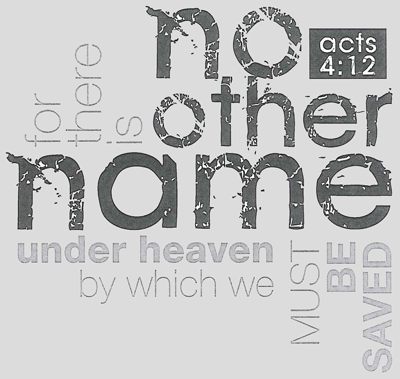
And there is salvation in no one else; for there is no other name under heaven that has been given among men by which we must be saved. – Acts 4:12
Shabbat Shalom!
If you enjoyed reading this article, share it today with friends! We also invite you to sign up for our weekly Torah Portion commentary on the sidebar to the right.
Help keep our weekly commentaries free and available to all. Click here to donate today:
Torah Portion: Deut. 29:10 – Deut. 30:20
Haftara: Isaiah 61:10 – Isaiah 63:9
Return to Torah Portion Homepage
Copyright Jewels of Judaism. All rights reserved 2016


